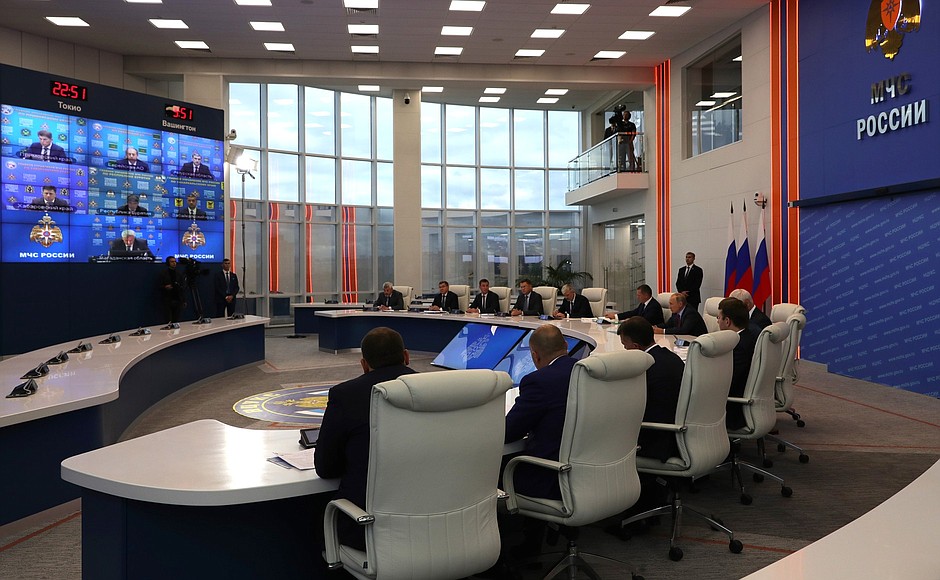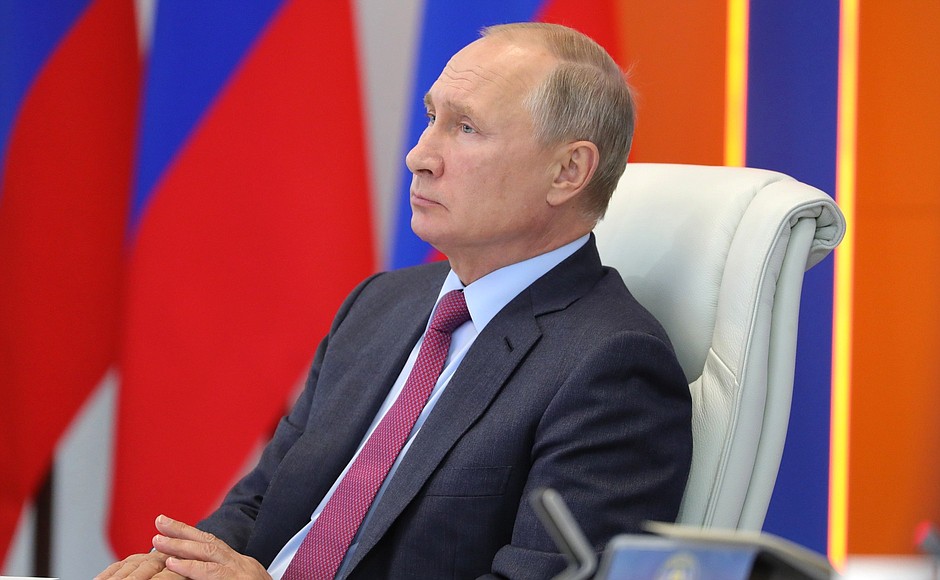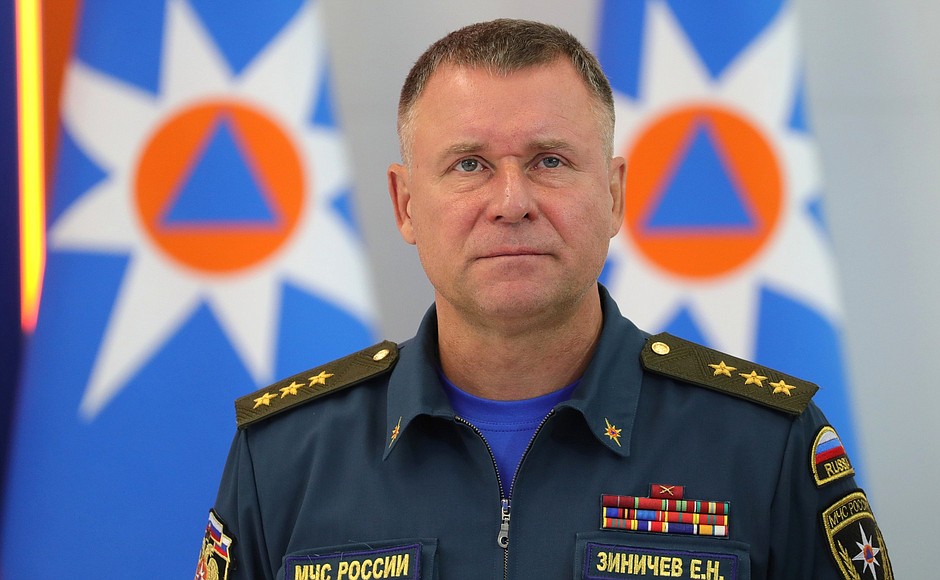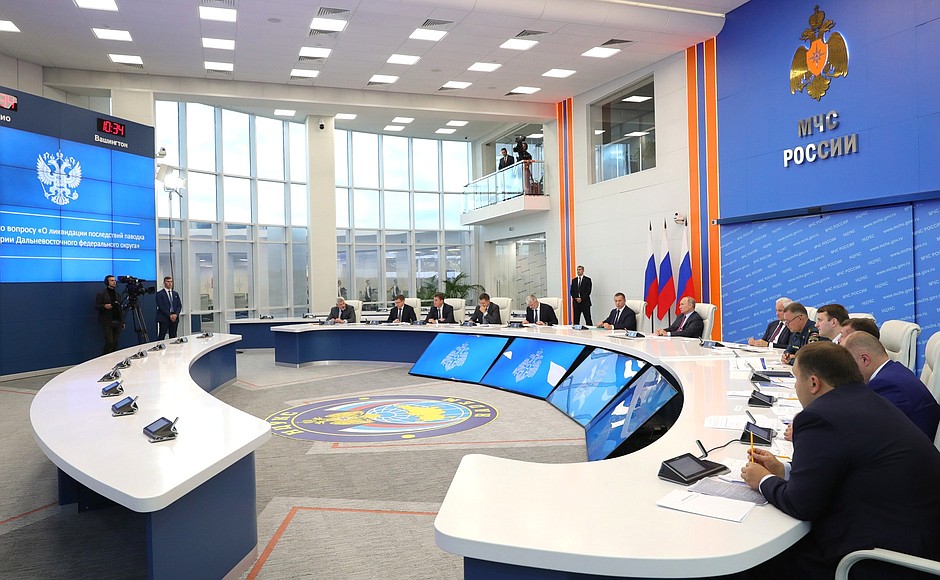President of Russia Vladimir Putin: Hello, colleagues,
This year we have more than once discussed the situation in the Irkutsk Region where two flooding disasters occurred, one right after the other, including on site, often directly with local residents. Meanwhile, large natural disasters also affected other regions, primarily in the Far East.
In attendance today are the heads of the Amur and the Jewish Autonomous regions and the Khabarovsk Territory. The Trans-Baikal Territory, the Magadan Region and the Republic of Buryatia, which were affected by flooding earlier, are staying connected.
Situation reports indicate that we have in general passed the peak of the flooding; let’s hope for that. Towns and buildings are gradually emerging from the water. The pre-emptive measures taken after the massive 2013 flooding helped avoid certain tragic and critical consequences. The National Crisis Management Centre of the Russian Emergencies Ministry has been effective. However, there are no final data on the damage, the number of households, enterprises or infrastructure facilities affected. Dozens of towns, villages, and several hundred residential houses remain flooded. This is why I would like to stress the first and key matter: people cannot be left alone to face these problems.
Everyone – I want to say that I have said this a number of times but I will emphasise it again – everyone who suffered as a result of the flooding must receive support, must be informed of their rights and the allowances they are entitled to under the law; they must be able to get this assistance immediately and must know where to apply for it. Unfortunately, this is not always happening.
People still encounter callousness and red tape, which are all too common in our bureaucracy. I ask you to properly instruct your subordinates to conduct this work responsibly and consistently. And ask the heads of the regions to personally visit the affected areas without delegating this to anybody else so as to see the situation with their own eyes, to talk to the people and understand what needs to be done.
Second, housing. This is the most serious and sensitive issue for everyone who had to leave their homes, while autumn and winter are almost upon us. Our task is to provide assistance quickly and efficiently and to address housing issues as soon as possible, considering the approaching colds.
Third is to provide support to the elderly and lonely people as well as the disabled. We should not wait for their requests. The authorities must attend to everyone, find out what they need, help fill in the necessary documents and papers (or do it for them, if necessary), support, submit the documents where necessary and, most importantly, control all this and see that the work is done. Do not just forget about these papers, but see this through.
Of course, the focus must also be on children; they must have everything they need: a place at school or kindergarten; and comfortable transport is also necessary if children have to go to a different school.
Next, we have to restore energy and road infrastructure facilities and transport and normalise the operation of residential utility services as soon as possible. I am not even mentioning healthcare services, which must remain high quality and accessible regardless of the institution people turn to: whether it’s based on their place of residence or not.
Of course, we must evaluate the damage to businesses, including small and medium-sized enterprises and farms.
On the whole, today I am asking you to report briefly and clearly on the developments, to provide an analysis of the current situation and the necessary measures: what additional assistance the federal authorities or the government needs to provide and what the immediate needs and problems are.
I have to bring your attention to the fact that, according to incoming information, so far the disaster relief operations at the regional and local levels are not always carried out quickly or relevantly to the problems people face. This includes housing inspections and compiling the lists of victims. This makes it impossible to organise assistance or determine the size of federal support.
We have no information on these critical issues to organise the work so far. No information yet. We continue to receive requests, but there are no documents or grounds for these requests. How can we make any decisions without documentation? Why are you stalling? Let me remind you that the heads of the regions and municipalities are directly responsible for this.
Let’s discuss these issues.
<…>



